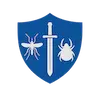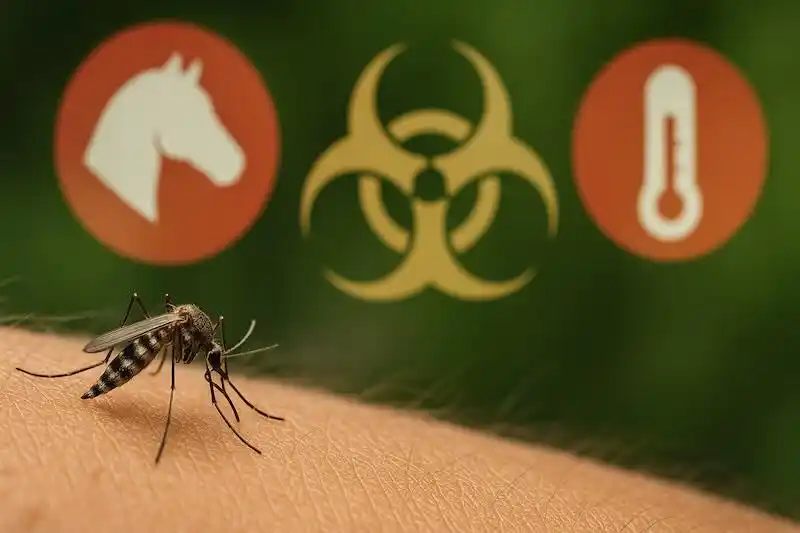Most people think of mosquitoes as a nuisance, but they can also carry diseases that affect both humans and animals. In Michigan, certain mosquito-borne illnesses show up almost every year, and some can be serious or even fatal.
If you live in Battle Creek or anywhere in Calhoun County, it’s important to understand the risks. Knowing what these illnesses are, how they spread, and how to protect yourself can help you and your family stay safe during mosquito season.
1. West Nile Virus
West Nile virus is one of the most common mosquito-borne illnesses in Michigan. It is spread when a mosquito bites an infected bird and then bites a person.
Most people infected with West Nile virus don’t have symptoms. But some develop fever, body aches, rash, or swollen lymph nodes. In rare cases, it can lead to serious neurological problems like meningitis or encephalitis.
The Michigan Department of Health and Human Services tracks West Nile every year. Late summer and early fall are usually when cases peak in our region.
2. Eastern Equine Encephalitis (EEE)
EEE is less common but far more dangerous. It can affect both people and animals, especially horses. In recent years, Michigan has seen small outbreaks in rural areas including nearby counties.
Eastern Equine Encephalitis symptoms can include sudden fever, headache, vomiting, and confusion. In severe cases, it causes brain inflammation and can be fatal. Because it progresses quickly, any suspected symptoms should be treated as a medical emergency.
Mosquitoes that carry EEE tend to live in wooded, swampy areas. If your home is near these environments, the risk may be higher.
3. Heartworm in Dogs and Cats
Pet owners should also be aware that mosquitoes can transmit heartworm to dogs and cats. Heartworm is a parasitic disease that can damage the heart, lungs, and other organs. Left untreated, it can be deadly.
Fortunately, heartworm is preventable. Talk to your veterinarian about monthly prevention, especially during peak mosquito months.
4. When and Where Risk Is Highest
Mosquito season in Michigan typically runs from late spring through early fall, with July through September being the highest-risk months for disease transmission.
Areas with standing water, wooded surroundings, and lots of vegetation are more likely to harbor infected mosquitoes. This includes locations near rivers, lakes, marshes, and even low-lying backyards after heavy rain.
Battle Creek has several higher-risk zones including properties near the Kalamazoo River, wooded neighborhoods like those in Lakeview or Bedford Township, and homes near undeveloped land or open water.
5. Protecting Yourself and Your Family
You can reduce your risk of mosquito-borne illness by taking a few key steps:
- Eliminate standing water around your home
- Wear long sleeves and pants when outdoors at dusk or dawn
- Use insect repellent with DEET or oil of lemon eucalyptus
- Keep screens on windows and doors in good repair
- Schedule regular mosquito treatments for your yard
While no solution is perfect, professional mosquito control can dramatically reduce the mosquito population on your property, lowering your risk of bites and the illnesses they may carry.
Stay Safe This Mosquito Season
Mosquito-borne illnesses are a real concern in Michigan, but awareness and prevention go a long way. If you are dealing with a high number of mosquitoes around your home, consider calling in a local expert who understands the risks in Battle Creek and knows how to help.
Protect your health and enjoy your summer with fewer bites and more peace of mind.









